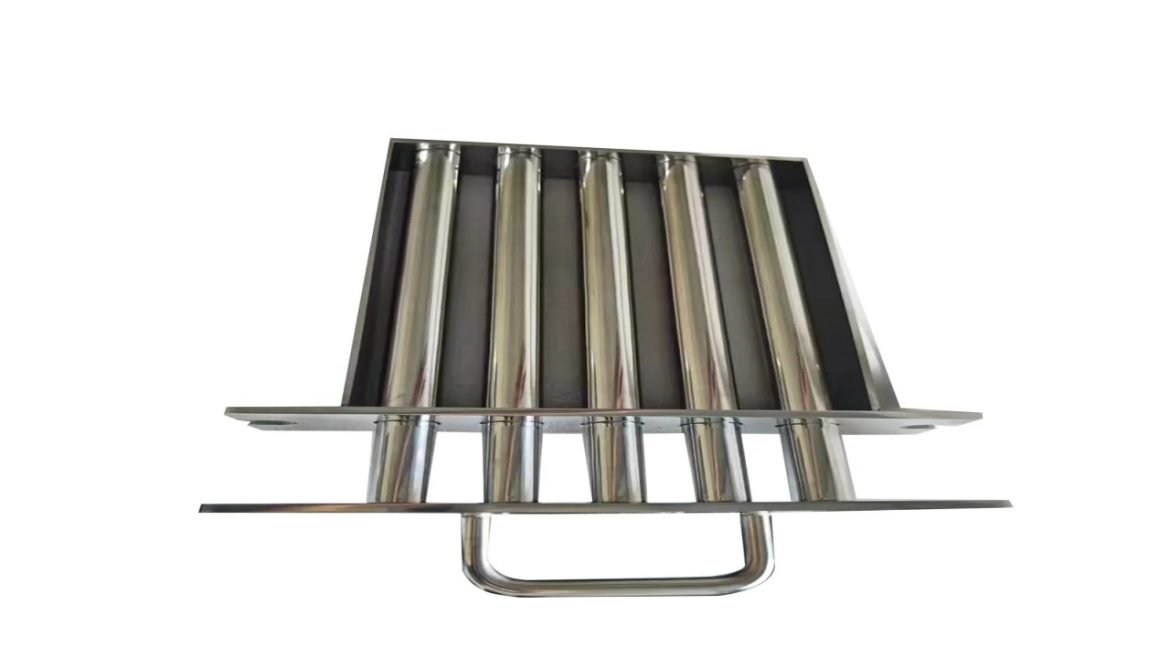In material handling systems, efficiency is key to ensuring smooth operations and minimizing downtime. One of the most effective ways to enhance this efficiency is through the use of grate magnets. These magnetic devices are designed to capture ferrous contaminants in bulk materials, protecting both equipment and product quality. Grate magnets are especially valuable in industries such as food processing, pharmaceuticals, and manufacturing, where even small amounts of metal contamination can cause significant damage or compromise safety standards. In this article, we will explore why grate magnets are essential in optimizing material handling systems and how they contribute to improved operational efficiency and product integrity.
The Role of Grate Magnets in Material Handling Systems
Grate magnets are strategically placed in material handling systems to trap and remove metal particles from bulk materials, ensuring that the products are clean and that equipment operates at peak efficiency. This section highlights the key roles of grate magnets in material handling and the benefits they bring to various industries.
1. Protecting Equipment from Metal Contaminants
One of the primary functions of grate magnets is to protect machinery and equipment from metal contaminants. Ferrous metals, such as iron or steel, can cause significant damage to processing equipment, including grinders, crushers, and conveyors. Even small metal particles can lead to wear and tear on critical components, resulting in costly repairs and unplanned downtime. Grate magnets capture these ferrous particles before they can reach sensitive machinery, extending the life of equipment and minimizing the risk of costly repairs.
2. Ensuring Product Purity and Quality
Grate magnets are crucial in ensuring product purity by preventing metal contamination from entering the final product. In industries like food processing and pharmaceuticals, metal contamination can compromise product safety and quality, leading to product recalls or regulatory violations. Grate magnets remove harmful metallic particles from bulk materials, thereby protecting the integrity of the product and ensuring it meets safety standards. This is especially important in sectors where consumer health and compliance with safety regulations are critical.
3. Improving Efficiency in Bulk Material Handling
Grate magnets help maintain the flow of bulk materials in handling systems by preventing blockages caused by metal particles. When ferrous materials are not removed, they can cause clogging in conveyors or silos, disrupting the flow of materials and leading to inefficiencies in production. Grate magnets enhance material flow by removing these contaminants, which helps keep the system running smoothly and reduces the chances of delays or interruptions.
4. Versatility Across Different Industries
Grate magnets are versatile and can be used in a wide range of industries, from food manufacturing to chemical processing. Whether used in bulk material handling, liquid filtration, or powder processing, these magnets can be adapted to suit various applications. Their ability to capture ferrous contaminants without affecting the flow of materials makes them suitable for both high-volume and precision operations.
5. Cost Savings and Maintenance Benefits
By preventing damage to machinery and maintaining product quality, grate magnets contribute to long-term cost savings for businesses. With fewer breakdowns and repairs, companies can reduce maintenance costs and improve their operational efficiency. Moreover, since grate magnets require minimal maintenance and have a long lifespan, they provide an affordable solution for contamination control in material handling systems.
Conclusion
Grate magnets are key components in material handling systems, providing several advantages such as protecting equipment from metal contaminants, maintaining product quality, and improving operational efficiency. By capturing ferrous particles before they cause damage to machinery or compromise the final product, grate magnets help reduce maintenance costs and minimize downtime. Their versatility allows for use across various industries, including food processing, pharmaceuticals, and manufacturing. Integrating grate magnets into material handling systems enhances system performance, ensures product safety, and supports smoother, more efficient operations.
